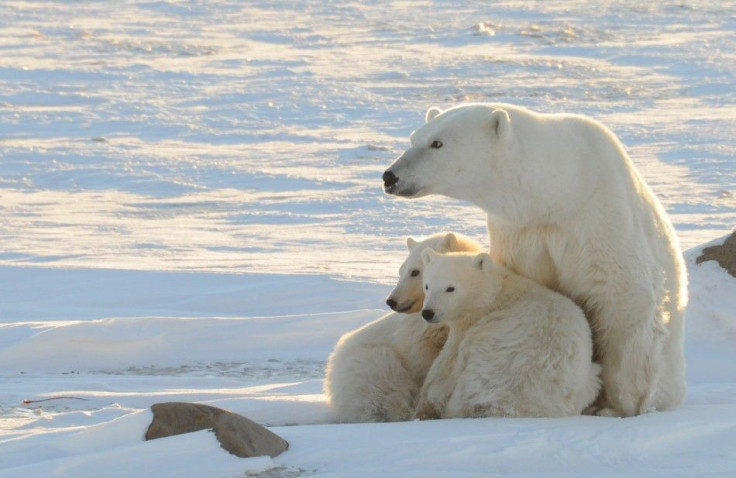Climate Change Stunts Animal, Plant Growth, Could Later Affect Food Production: Study

Climate Change has been blamed for many things and add one more to the list: It is stunting the growth of animals and plants because warmer temperatures and lack of water is causing them to shrink, a new study suggests. Researchers also warned that it could affect food production in coming years.
The worst-case scenarios ... are that food crops and animals will shrink enough to have real implications for food security, David Bickford, an assistant professor at the National University of Singapore's biological sciences department, told the media.
From the toughest polar bears to the smallest house sparrow, the researchers of the study found that many of Earth's species seem as if they are shrinking in size.
Bickford and his colleague Jennifer Sheridan's research was published online on Sunday in the journal Nature Climate Change. They've documented the trend for the past two years. They also compiled and reviewed other studies and found that 38 of 85 animal and plant species show a documented reduction in size over decades. This includes a type of Scottish sheep that is five per cent smaller than it was in 1985.
About two years ago, Scottish researchers reported their shrinking sheep study.
There are also have been studies showing that polar bears aren't as big as they once were.
The researchers also learned through fossil records that many species of plants and creatures such as spiders, beetles, bees, ants and cicadas have shrunk in size over time in relation to climate change. Other specimens include cotton, corn, strawberries, bay scallops, shrimp, crayfish, carp, Atlantic salmon, frogs, toads, iguanas, hooded robins, red-billed gulls, California squirrels and wood rats.
The researchers noted an experiment showing how shoots and fruit are 3 to 17 percent smaller for every degree Celsius of warming in a number of plants. It is suggested that each degree of warming also reduces the body size of marine invertebrates by 0.5 to 4 percent and for fish it that reduction is even worse — 6 to 22 percent.
Survival of small individuals can increase with warmer temperatures, and drought conditions can lead to smaller offspring, leading to smaller average size, the researchers wrote in the the paper published in the journal on Monday.
But scientists don't expect you will wake up one day to find that everything around you has suddenly become smaller.
I don't think that organisms will shrink to the degree that you'll walk outside and see that trees are suddenly half the size that they sued to be, Jennifer Sheridan, a conservation biologist at the University of Alabama and a co-author of the paper noted in the journal issue.
She noted also that the theory is as things get warmer they don't need to grow as large.
Bickford wrote that the implication to this is that food resources could become more limited, which means that there will be less food produced on the same amount of land. It could also mean wholesale biodiversity loss and eventual catastrophic cascades of ecosystem services.
But other experts believe that the authors' conclusion has gone too far, as they could be blaming global warming for what may just be natural changes.
The authors cited studies from Yoram Yom-Tov, a zoologist at Tel Aviv University, for their research.
Yom-Tov told the Sydney Morning Herald that many species are indeed shrinking, but global warming cannot be exclusively blamed.
Changes in body size are a normal phenomenon, Yom-Tov wrote in an e-mail to the paper. When conditions are favourable, they increase in size or reproduce at higher rates, and when conditions are deteriorating, they do the opposite. I think that most species will adapt to climate change and survive. No need for alarm.
Nevertheless, Martin Daufresne, an aquatic ecologist at Cemagref, a government environmental research institute in Aix-en-Provence, France, told The New York Times that the new paper is very interesting.
It brings new insights to the topic by discussing the generality of these patterns and their potential causes, and by suggesting future research directions, he said.
© Copyright IBTimes 2024. All rights reserved.






















